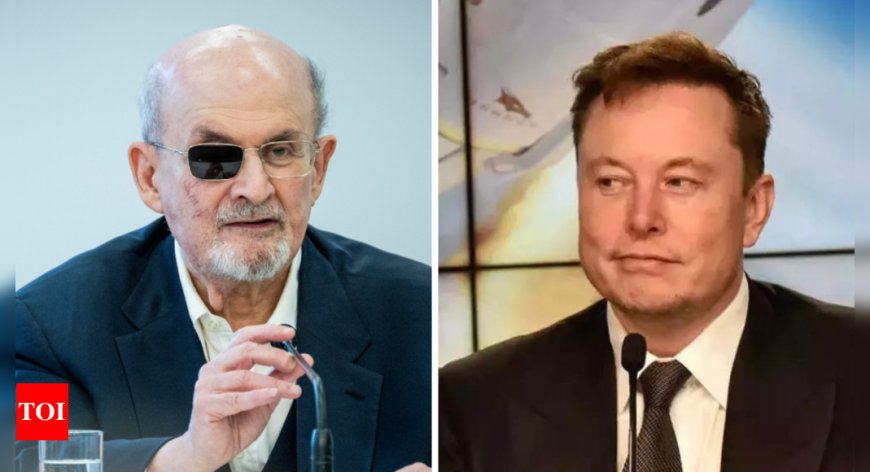'Be the first man on Mars': Salman Rushdie slams Elon Musk over free speech
'Be the first man on Mars': Salman Rushdie slams Elon Musk over free speech

'Be the First Man on Mars': Salman Rushdie Slams Elon Musk Over Free Speech
News by dharmyuddh.com
Introduction
In a recent public statement that has stirred significant discourse, acclaimed author Salman Rushdie criticized tech mogul Elon Musk, urging him to "be the first man on Mars." This remark was not merely a jab at Musk's aspirations for interplanetary travel, but rather a pointed critique about the implications of Musk's approach to free speech, especially in his capacity as the owner of a major social media platform.
The Context of the Remarks
Rushdie's comments come at a time when discussions around free speech have become increasingly relevant, particularly in the context of social media censorship and the responsibilities of platform owners. Musk's infamous acquisition of Twitter (now X) has raised eyebrows regarding his policies on content moderation and the spread of misinformation. Rushdie, who has faced his own challenges concerning freedom of speech, utilized this opportunity to emphasize the need for accountability and ethical considerations in the digital landscape.
Implications of Musk's Free Speech Policies
The implications of Musk's policies on free speech extend beyond just Twitter users. Critics argue that allowing unfiltered speech can lead to the spread of toxic narratives and hate speech. Rushdie's statement challenges Musk to reflect on the broader societal impacts of his choices. As someone who has been in the spotlight due to threats around his own ability to speak freely, Rushdie's insights carry weight and significance.
The Broader Conversation
This critique initiates a larger conversation about the role of billionaires in shaping public discourse. Are tech leaders doing enough to protect the principles of free speech while also ensuring the safety and integrity of their platforms? Moreover, the juxtaposition of Rushdie's advocacy for responsible speech against Musk's ambitious goals—for example, a manned mission to Mars—invites further debate on priorities and responsibilities in leadership.
Conclusion
As this narrative unfolds, the intersection of technology, freedom of speech, and ethical responsibilities continues to be a fertile ground for discussion. Musk’s missions extending beyond Earth bring about a futuristic vision, yet it’s vital to address the current implications of his actions on social media and public discourse. In light of these events, it’s evident that public figures like Rushdie will likely continue to raise their voices against perceived injustices and advocate for a more responsibly governed digital space.
For more updates, visit dharmyuddh.com.







